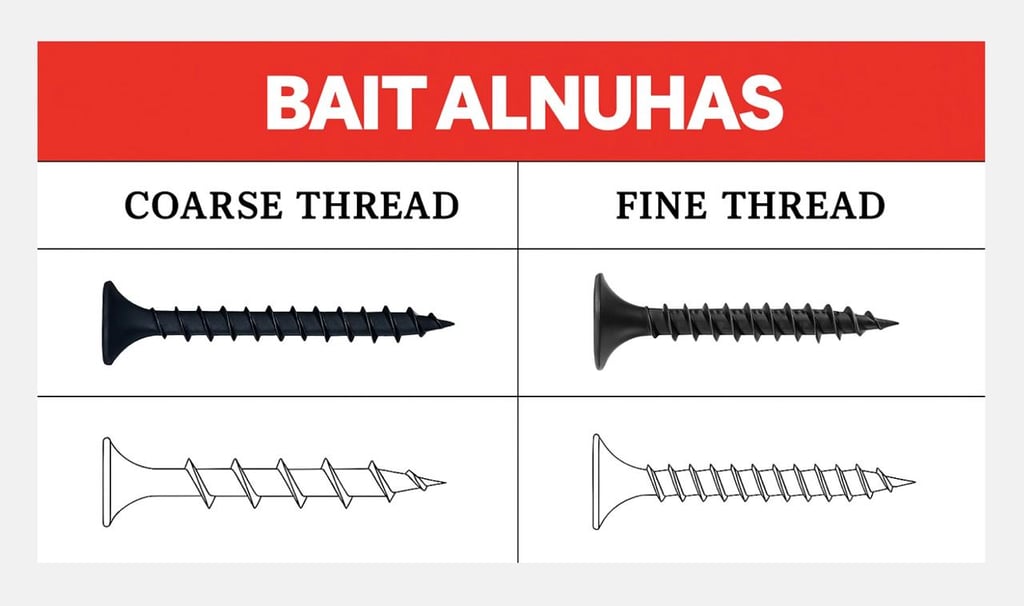Coarse vs Fine Thread Fasteners – Which One to Choose?
Understand the key differences between coarse and fine thread fasteners. Learn which thread type is best for strength, speed, vibration resistance & specific applications.
PRODUCT-SPECIFIC


Introduction
Fasteners come in many types and sizes, but one of the most critical distinctions is between coarse and fine thread types. Choosing the right thread type can significantly impact the performance, durability, and reliability of your application. In this blog, we’ll break down the differences between coarse and fine threads, explore their advantages and disadvantages, and help you decide which one to use for your next project.
What Are Coarse and Fine Threads?
Thread pitch refers to the distance between threads. Coarse threads have fewer threads per inch (TPI), while fine threads have more.
Coarse Thread (UNC): Fewer threads per inch; deeper, more aggressive thread profile.
Fine Thread (UNF): More threads per inch; shallower and more closely spaced threads.
Mechanical Differences
Strength and Load Capacity
Fine threads typically have a higher tensile strength due to their larger stress area. This makes them ideal for high-stress applications like automotive engines or heavy machinery.
Vibration Resistance
Fine threads resist loosening under vibration better than coarse threads. However, coarse threads are more tolerant to damage and debris, making them easier to work with in field conditions.
Ease of Installation
Coarse threads are quicker to assemble and less likely to cross-thread. They are ideal for soft or low-density materials and for applications requiring fast, frequent assembly.
Application Guide
When to Use Coarse Threads
Woodworking
Plastic assemblies
Quick-fit construction applications
Situations involving dirty or damaged threads
When to Use Fine Threads
Precision instruments
Automotive assemblies
Aerospace components
Metal-on-metal joints requiring high clamping force
Material Compatibility
Thread type can influence how well a fastener holds in different materials:
Metal: Fine threads offer better holding power and precision.
Wood/Plastic: Coarse threads grip better and reduce the risk of stripping.
Composite Materials: Coarse threads are more forgiving and reduce installation damage.
Thread Stripping & Holding Power
Fine threads, because of their larger surface area in contact, have a greater resistance to stripping under tension. Coarse threads are more durable in soft materials, reducing the risk of stripping during installation.
Corrosion and Maintenance
In corrosive environments, coarse threads are preferable due to deeper threads that better tolerate rust and debris. Fine threads, while precise, are more prone to seizing and can be harder to remove after corrosion sets in.
Conclusion & Expert Tips
Choosing the right thread type depends on the material, application, and environmental conditions. Here's a quick comparison chart:
FeatureCoarse ThreadsFine ThreadsThread PitchFewer TPIMore TPIStrengthGood in soft materialsHigher tensile strengthVibration ResistanceModerateHighInstallationFaster, easierSlower, more preciseBest ForWood, plasticsMetals, precision partsCorrosion ToleranceBetterLower
Expert Tip: For outdoor or rough-use applications, coarse threads are often the best choice. For precise, high-strength joints, go with fine threads.
Need help choosing the right fasteners? Contact our team at Bait Alnuhas for expert recommendations and bulk pricing.
